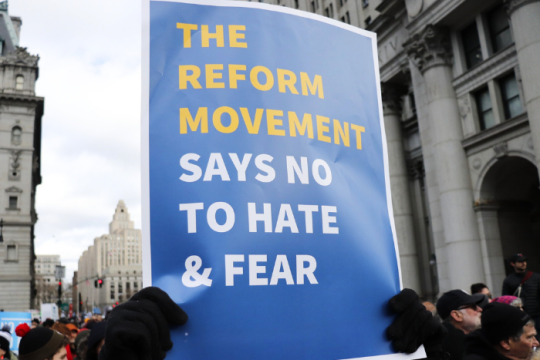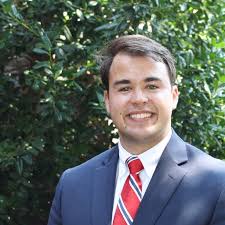
Rosh Hashanah is about taking stock of one's year: a time for reflection and introspection. The opportunity to reflect does not begin at Rosh Hashanah, however. Rosh Hashanah comes after the month of Elul, when Jews begin to ritually account for the year that has passed. And yet, Elul is just as forward-looking as it is retrospective. Elul is about preparing to face ourselves during Rosh Hashanah and Yom Kippur. During this holy week between Rosh Hashanah and Yom Kippur, we atone for our sins—we hold up a mirror to our individual and communal blemishes—in the hope of re-orienting ourselves for the year ahead. We look within and behind ourselves so that we are prepared for the challenges ahead.
Elul contains an age-old practice of unearthing the deepest dimensions of our sins. As we unpack the roots and causes of our actions, we are reminded that accountability is a practice. It is something we must sustain regularly.
In the weeks since the horrific events that unfolded in Charlottesville and as we move from Elul into the new year during this holiday season, Elul's lesson in accountability as preparation is especially meaningful. As the nation bore witness to unconscionable acts of violence and bigotry, several policy areas of the Reform Movement took on a renewed urgency. One of these areas is hate crimes. Charlottesville reminded us that amid the enduring threat of white supremacy, racism, anti-Semitism, and other systems of oppression, we must strengthen our preparedness for fighting hate crimes and other crimes that are the result of the very sort of ugliness that revealed itself last month.
The Reform Movement has long been active in holding the federal government accountable for how it responds to hate crimes. Before Rosh Hashanah, we joined a letter with over 80 other organizations addressed to the Department of Justice calling on the federal government to improve its hate crime response and prevention framework.
The letter addressed several points to the Department of Justice. Some of the recommendations include:
· Fully fund offices that are essential to the Department of Justice’s civil rights operations.
· Lay out strategy to build trust among communities—especially communities of color and other marginalized communities—which have been disproportionately harmed by policies that have been implemented by federal law enforcement. This will ultimately increase the likelihood that members of these communities will report hate crimes and other crimes to the police. This also means that the Department of Justice must rescind the policies that undermine this trust.
· Improve data collection on hate crimes and hold local law enforcement authorities accountable for their participation in data collection, which will help authorities and policymakers better understand the scope of hate crimes and address them appropriately.
· Plan training sessions for areas of the country where law enforcement appears to be underreporting hate crimes data to help law enforcement properly recognize and address hate crimes.
These were just a few recommendations addressed in the letter among many other important priorities.
As we prepare for the challenges in the year ahead during this holiday season—challenges we may not even fathom now—we must demand that our nation does the same. It is time to strengthen how our federal law enforcement responds to hate crimes.
Related Posts

The Union for Reform Judaism’s Responses to the Increase in Antisemitic Incidents

Share a Message with the Milgrim and Lischinsky Families

